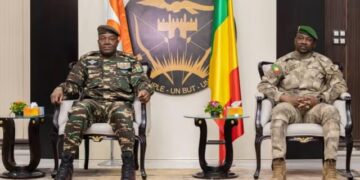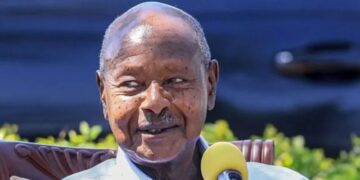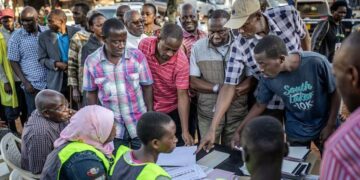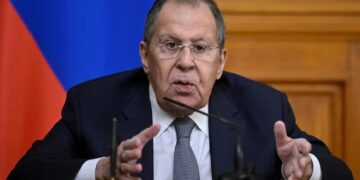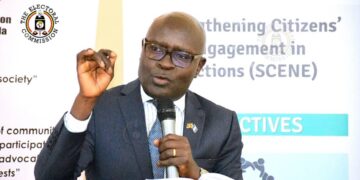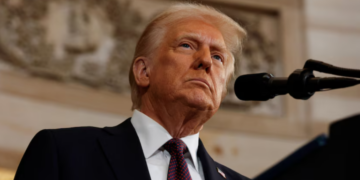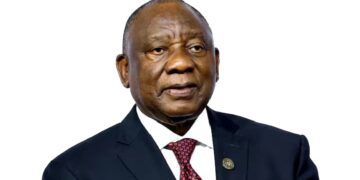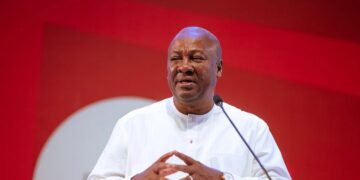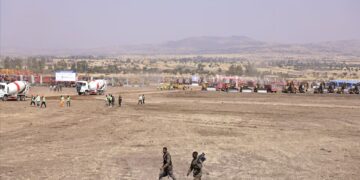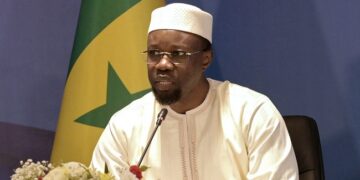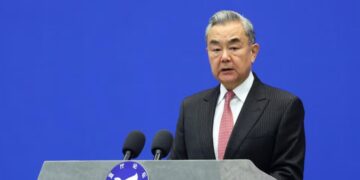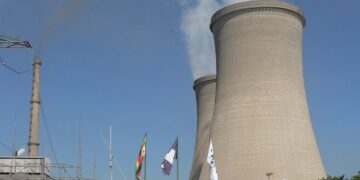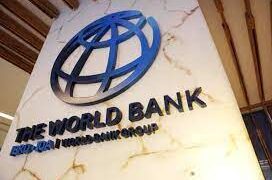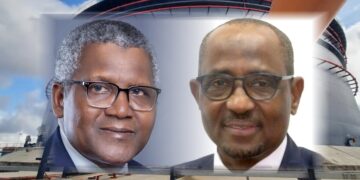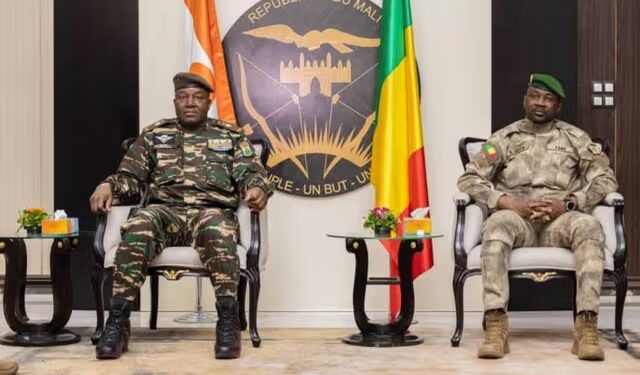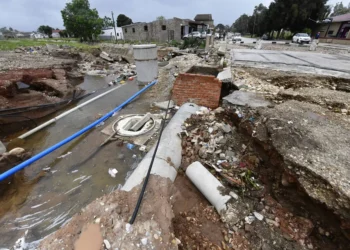By Enyichukwu Enemanna
Niger’s military Head of State, General Abdourahamane Tiani, on Tuesday visited Mali’s capital, Bamako where he was received with military honours by his counterpart in Mali, General Assimi Goïta.
It was Tchiani’s second visit to Mali since he came to power through a military coup in July 2023.
During their discussion, both leaders placed emphasis on security, pledging to accelerate efforts to operationalize a joint military force that would coordinate counterterrorism operations, intelligence-sharing, and border security.
The visit is seen as part of efforts to strengthen ties within the Alliance of Sahel States (AES), a bloc formed by Mali, Niger, and Burkina Faso following their withdrawal from the Economic Community of West African States (ECOWAS) earlier this year.
Tchiani described the backing from Niger’s Sahel neighbors as a “sacrifice,” reflecting their willingness to defend the country against external aggression.
“I came to affirm to my brother Assimi Goita and to the Malian people our gratitude and recognition for the sacrifices made. They were ready to enter a war if Niger had been attacked, and this will never be forgotten,” he said.
The visit started with a private meeting at the Koulouba Palace before the two leaders were joined by their defence and finance ministers for expanded talks.
According to government officials, the agenda went well beyond symbolism, focusing on advancing the AES’s security and economic agenda at a time of heightened instability across the region.
The three junta-led West African nations of Mali, Niger, and Burkina Faso are battling jihadist groups linked to al-Qaeda and Islamic State.
The creation of a unified command structure is seen as very important in reclaiming control over large swathes of their territories.
Tchiani at the visit announced the launch of the Sahel Confederation Investment and Development Bank, noting that its headquarters and supporting structures were already in place.
Discussions further explored the AES’s broader economic strategy, with the bank expected to play a central role in financing infrastructure, agriculture, and energy projects.
